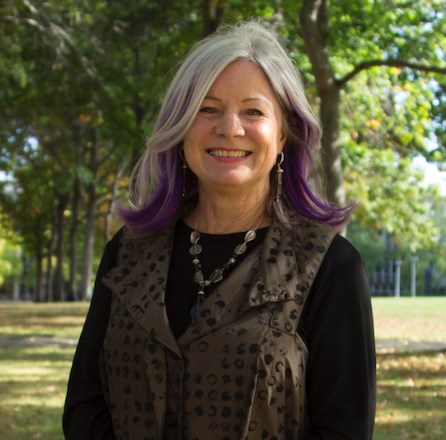Participants in a new online arts “café” for people with dementia can sing, move and meet each other — all of which have been shown to be good for the brain, says the organizer, a University of Victoria nursing professor.
The one-hour Memory Café sessions, the city’s first, include storytelling, poetry, music, art and gentle movement. Eight people with dementia met for their second online session Saturday, accompanied by their caregivers.
“I really believe in the power of the arts to draw attention away from the losses of dementia,” says Debra Sheets, who is also a researcher in UVic’s Institute on Aging and Lifelong Health. “You’re not your disease.”
The programs offered through the café, led by professional artists, would be interesting to almost anyone — not just people with dementia, Sheets said. “It’s not a support group, it’s about continuing to learn.
“The goal is not to have people watching their screen, it’s to have them actively engaged.”
Humour is a big part of the experience, said Sheets, who is assisted by a half-dozen students who volunteered to help organize the sessions.
The term Memory Café itself — a concept that’s been around since 1997 — helps put people at ease, said Sheets, whose father had dementia, which sparked her interest in creating “dementia-inclusive” programs.
“I think it’s called Memory Café just to indicate that it’s a really safe, comfortable space for people with dementia,” she said. “Because there’s a lot of stigma and there’s also a lot of social isolation as a result of having dementia.
“People are more afraid to say they have dementia than almost any other health condition.”
The original goal was to meet in-person at a coffee shop or a library, Sheets said, but because of pandemic restrictions on gatherings, the program shifted to a 12-week online Zoom format.
The pandemic has made it tough to get in touch with people who are affected by dementia, said Sheets. Participants also have to be willing to participate in her research study, which looks at the impact of the café on social connections and well-being — such as reduced risk for caregiver distress or depression.
The program is funded by the Eldercare Foundation of Greater Victoria.
Sheets said the risk of developing dementia doubles every five years after about age 65, when there is a five per cent risk.
“By the time you get to age 80, there’s up to a 50 per cent chance of having dementia,” she said. “We do see more people with early-onset, which means you have people in their late 50s who are having memory issues that are really concerning.”
Sheets previously created the Voices in Motion intergenerational choir, which she said benefited participants of all ages.
“Students learn a lot about empathy, they learn to communicate with older adults,” she said. “A lot of of our students that were involved in the choir have gone on to pursue careers working with older adults as nurses, physicians, social workers.”
There might be another spot or two available in the Memory Café, Sheets said. Call her at 250-853-3947 or send an email to dsheets@uvic.ca.
jbell@timescolonist.com



